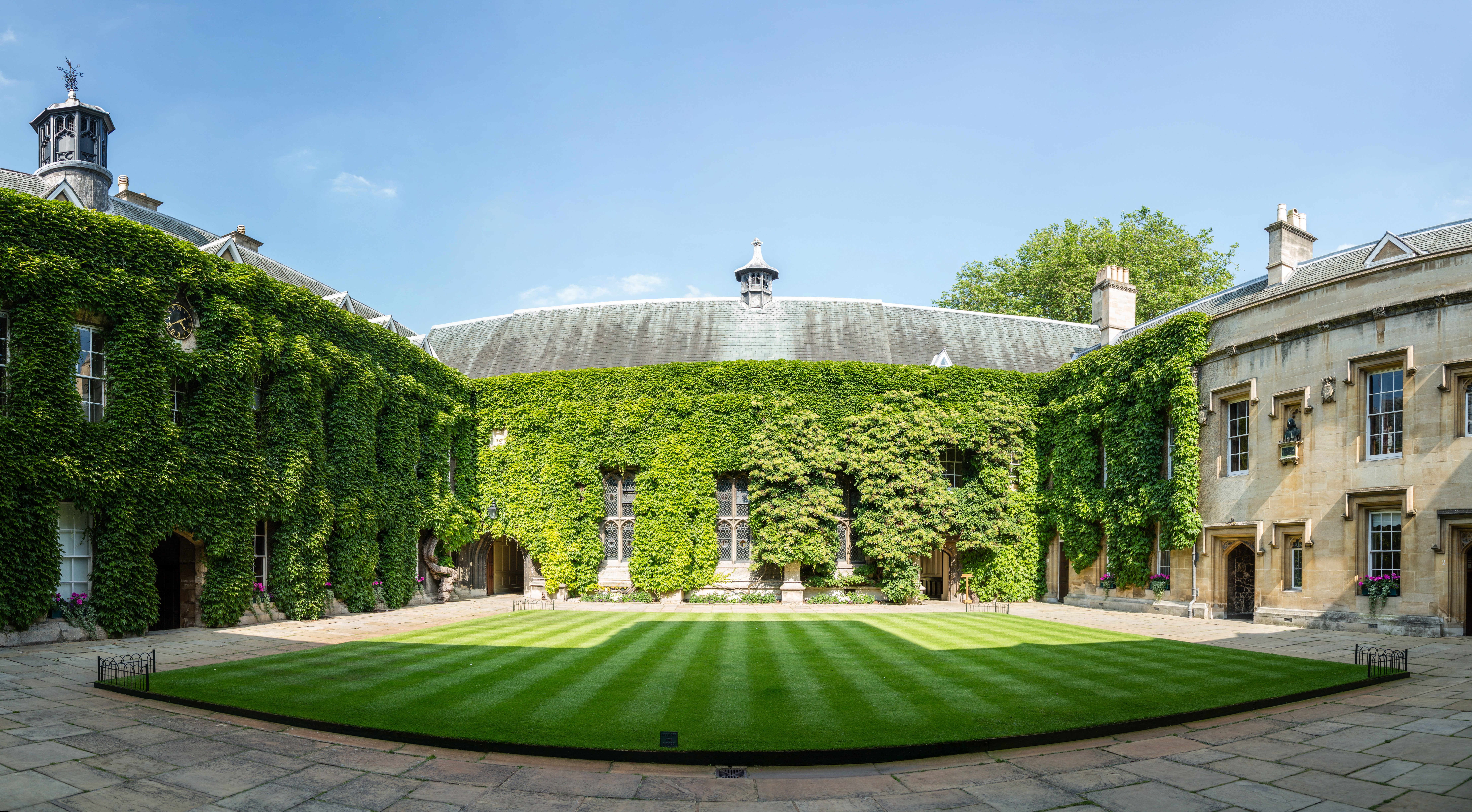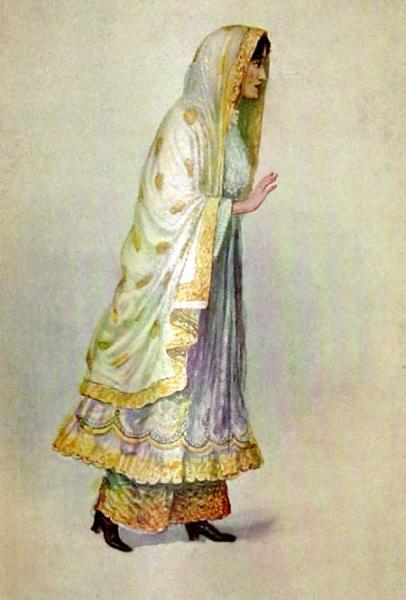|
M. C. Chagla
Mahomedali Currim Chagla (30 September 1900 – 9 February 1981) was an Indian jurist, diplomat, and Cabinet Minister who served as Chief Justice of the Bombay High Court from 1947 to 1958. Early life and education Born on 30 September 1900 in Bombay to a well-off Gujarati Ismaili Khoja family, Chagla suffered a lonely childhood owing to his mother's death in 1905. His childhood was spent in their family mansion in near Nagdevi Street and Janjiker Lane, Khokha Bazar in Pydhonie. He later bought a mansion in Malabar Hill in 1934. He was educated at St. Xavier's High School and College in Bombay, after which he went on to study Modern History at Lincoln College, Oxford, from 1918–21, taking a BA in 1921 and MA in 1925. In 1922, he was admitted to the Bar of the Bombay High Court, where he worked with such illuminaries as Sir Jamshedji Kanga and Mohammed Ali Jinnah, who would one day become the founder of Pakistan. Career Initially, like many nationalists, Chagla idoliz ... [...More Info...] [...Related Items...] OR: [Wikipedia] [Google] [Baidu] |
Lincoln College, Oxford
Lincoln College (formally, The College of the Blessed Mary and All Saints, Lincoln) is one of the constituent colleges of the University of Oxford, situated on Turl Street in central Oxford. Lincoln was founded in 1427 by Richard Fleming, the then Bishop of Lincoln. Notable alumni include the physician John Radcliffe, the founder of Methodism John Wesley, antibiotics scientists Howard Florey, Edward Abraham, and Norman Heatley, writers Theodor Seuss Geisel (Dr. Seuss) and David John Moore Cornwell (John le Carré), the journalist Rachel Maddow, and the current British Prime Minister Rishi Sunak. Mensa was founded at Lincoln College in 1946. Lincoln College has one of the oldest working medieval kitchens in the UK. History Founding Richard Fleming, the then Bishop of Lincoln, founded the College in order to combat the Lollard teachings of John Wyclif. He intended it to be "a little college of true students of theology who would defend the mysteries of Scripture against t ... [...More Info...] [...Related Items...] OR: [Wikipedia] [Google] [Baidu] |
Bombay Presidency
The Bombay Presidency or Bombay Province, also called Bombay and Sind (1843–1936), was an administrative subdivision (province) of British India, with its capital in the city that came up over the seven islands of Bombay. The first mainland territory was acquired in the Konkan region with the Treaty of Bassein (1802). Mahabaleswar was the summer capital. The Bombay province has its beginnings in the city of Bombay that was leased in fee tail to the East India Company, via the Royal Charter of 27 March 1668 by King Charles II of England, who had in turn acquired Bombay on 11 May 1661, through the royal dowry of Catherine Braganza by way of his marriage treaty with the Portuguese princess, daughter of John IV of Portugal. The English East India Company transferred its Western India headquarters from Surat in the Gulf of Cambay after it was sacked, to the relatively safe Bombay Harbour in 1687. The province was brought under Direct rule along with other parts of British I ... [...More Info...] [...Related Items...] OR: [Wikipedia] [Google] [Baidu] |
Mohammed Ali Jinnah
Muhammad Ali Jinnah (, ; born Mahomedali Jinnahbhai; 25 December 1876 – 11 September 1948) was a barrister, politician, and the founder of Pakistan. Jinnah served as the leader of the All-India Muslim League from 1913 until the inception of Pakistan on 14 August 1947, and then as the Dominion of Pakistan's first governor-general until his death. Born at Wazir Mansion in Karachi, Jinnah was trained as a barrister at Lincoln's Inn in London. Upon his return to India, he enrolled at the Bombay High Court, and took an interest in national politics, which eventually replaced his legal practice. Jinnah rose to prominence in the Indian National Congress in the first two decades of the 20th century. In these early years of his political career, Jinnah advocated Hindu–Muslim unity, helping to shape the 1916 Lucknow Pact between the Congress and the All-India Muslim League, in which Jinnah had also become prominent. Jinnah became a key leader in the All-India Home Rule ... [...More Info...] [...Related Items...] OR: [Wikipedia] [Google] [Baidu] |
Khoja
The Khojas ( sd}; gu, ખોજા, hi, ख़ोजा) are a mainly Nizari Isma'ili Shia community of people originating in Gujarat, India. Derived from the Persian Khwaja, a term of honor, the word Khoja is used to refer to Lohana Rajputs or Baniya castes who converted to Islam from Hinduism. They are historically members of the Bania groups converted to Islam by Muslim pirs (saints). In India, most Khojas live in the states of Gujarat, Maharashtra, Rajasthan and the city of Hyderabad. Many Khojas have also migrated and settled over the centuries in East Africa, the Caribbean, Europe and North America. The Khoja were by then adherents of Nizari Isma'ilism. In the late 19th and early 20th centuries, particularly in the aftermath of the Aga Khan Case a significant minority separated and adopted Sunni Islam and Twelver shi'ism, while the majority remained Nizari Isma'ili. In Pakistan, most Khoja live in Karachi in Sindh province. Etymology The term ''Khoja'' derives from ... [...More Info...] [...Related Items...] OR: [Wikipedia] [Google] [Baidu] |
Ismaili
Isma'ilism ( ar, الإسماعيلية, al-ʾIsmāʿīlīyah) is a branch or sub-sect of Shia Islam. The Isma'ili () get their name from their acceptance of Imam Isma'il ibn Jafar as the appointed spiritual successor (imām) to Ja'far al-Sadiq, wherein they differ from the Twelver Shia, who accept Musa al-Kadhim, the younger brother of Isma'il, as the true Imām. Isma'ilism rose at one point to become the largest branch of Shia Islam, climaxing as a political power with the Fatimid Caliphate in the 10th through 12th centuries. Ismailis believe in the oneness of God, as well as the closing of divine revelation with Muhammad, whom they see as "the final Prophet and Messenger of God to all humanity". The Isma'ili and the Twelvers both accept the same six initial Imams; the Isma'ili accept Isma'il ibn Jafar as the seventh Imam. After the death of Muhammad ibn Isma'il in the 8th century CE, the teachings of Ismailism further transformed into the belief system as it is known tod ... [...More Info...] [...Related Items...] OR: [Wikipedia] [Google] [Baidu] |
Cabinet Minister
A minister is a politician who heads a ministry, making and implementing decisions on policies in conjunction with the other ministers. In some jurisdictions the head of government is also a minister and is designated the ‘prime minister’, ‘premier’, ‘chief minister’, ‘chancellor’ or other title. In Commonwealth realm jurisdictions which use the Westminster system of government, ministers are usually required to be members of one of the houses of Parliament or legislature, and are usually from the political party that controls a majority in the lower house of the legislature. In other jurisdictions—such as Belgium, Mexico, Netherlands, Philippines, Slovenia, and Nigeria—the holder of a cabinet-level post or other government official is not permitted to be a member of the legislature. Depending on the administrative arrangements in each jurisdiction, ministers are usually heads of a government department and members of the government's ministry, cabinet and pe ... [...More Info...] [...Related Items...] OR: [Wikipedia] [Google] [Baidu] |
Jurist
A jurist is a person with expert knowledge of law; someone who analyses and comments on law. This person is usually a specialist legal scholar, mostly (but not always) with a formal qualification in law and often a legal practitioner. In the United Kingdom the term "jurist" is mostly used for legal academics, while in the United States the term may also be applied to a judge. With reference to Roman law, a "jurist" (in English) is a jurisconsult (''iurisconsultus''). The English term ''jurist'' is to be distinguished from similar terms in other European languages, where it may be synonymous with legal professional, meaning anyone with a professional law degree that qualifies for admission to the legal profession, including such positions as judge or attorney. In Germany, Scandinavia and a number of other countries ''jurist'' denotes someone with a professional law degree, and it may be a protected title, for example in Norway. Thus the term can be applied to attorneys, judges an ... [...More Info...] [...Related Items...] OR: [Wikipedia] [Google] [Baidu] |
President John F
President most commonly refers to: *President (corporate title) *President (education), a leader of a college or university *President (government title) President may also refer to: Automobiles * Nissan President, a 1966–2010 Japanese full-size sedan * Studebaker President, a 1926–1942 American full-size sedan * VinFast President, a 2020–present Vietnamese mid-size SUV Film and television *'' Præsidenten'', a 1919 Danish silent film directed by Carl Theodor Dreyer * ''The President'' (1928 film), a German silent drama * ''President'' (1937 film), an Indian film * ''The President'' (1961 film) * ''The Presidents'' (film), a 2005 documentary * ''The President'' (2014 film) * ''The President'' (South Korean TV series), a 2010 South Korean television series * ''The President'' (Palestinian TV series), a 2013 Palestinian reality television show *''The President Show'', a 2017 Comedy Central political satirical parody sitcom Music *The Presidents (American soul band) *The ... [...More Info...] [...Related Items...] OR: [Wikipedia] [Google] [Baidu] |
Muslim Nationalist Party
The Muslim Nationalist Party was a political party in pre-independence India by M. C. Chagla. Its most prominent leader was Asaf Ali. The party was founded on grounds of support for the Indian independence movement and opposition to the All India Muslim League and the partition of India. The party did not explicitly support or associate itself with the Indian National Congress, but did endorse secularism Secularism is the principle of seeking to conduct human affairs based on Secularity, secular, Naturalism (philosophy), naturalistic considerations. Secularism is most commonly defined as the Separation of church and state, separation of relig ... and a united India. Indian independence movement Political parties in India {{India-hist-stub ... [...More Info...] [...Related Items...] OR: [Wikipedia] [Google] [Baidu] |
All-India Muslim League
The All-India Muslim League (AIML) was a political party established in Dhaka in 1906 when a group of prominent Muslim politicians met the Viceroy of British India, Lord Minto, with the goal of securing Muslim interests on the Indian subcontinent. The party arose out of the need for the political representation of Muslims in British India, especially during the Indian National Congress-sponsored massive Hindu opposition to the 1905 partition of Bengal. During the 1906 annual meeting of the All India Muslim Education Conference held in Israt Manzil Palace, Dhaka, the Nawab of Dhaka, Khwaja Salimullah, forwarded a proposal to create a political party which would protect the interests of Muslims in British India. Sir Mian Muhammad Shafi, a prominent Muslim leader from Lahore, suggested the political party be named the 'All-India Muslim League'. The motion was unanimously passed by the conference, leading to the official formation of the All-India Muslim League in Dhaka. It remai ... [...More Info...] [...Related Items...] OR: [Wikipedia] [Google] [Baidu] |







